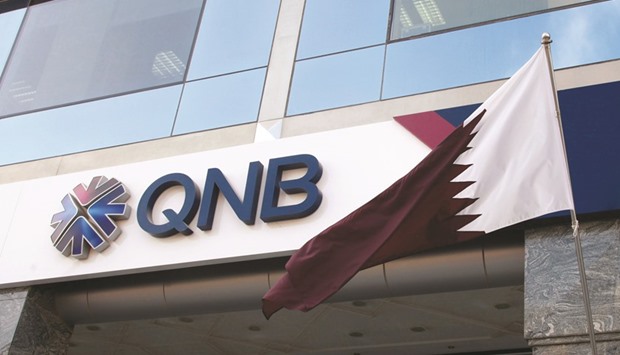QNB Group, Qatar's largest bank in terms of assets, is all set to start full-fledged banking operations in India, less than two months after Prime Minister Narendra Modi visited the Gulf country.
The bank said it has obtained authorisation to open a branch in India in order to provide comprehensive banking services.
QNB would be the second lender to enter India, where the country's banking system is largely dominated by state-owned entities, which accounted for more than two-thirds of the sector’s assets.
"The group obtained the approval of the regulatory authorities in India to conduct its operations, thus adding an important global market to its growing network, which would help achieve its goals of strategic global expansion," a QNB spokesman said.
QNB Group’s presence through its subsidiaries and associate companies now extends to more than 30 countries across three continents providing a comprehensive range of advanced products and services.
The total employee strength exceeds 27,300 operating through more than 1,200 locations, with a network of more than 4,300 ATMs.
QNB is the second Qatari lender to receive licence in India. Doha Bank had started operations last year and since then it had also acquired two assets from HSBC Oman to expand its presence in the Asian country where it is also planning to establish a wholly-owned subsidiary.
QNB's entry into India comes as at a time when foreign banks' share has been on the decline and that many multinational banking giants are paring their exposure.
There have been reports that the UK-based Barclays Bank had shut down its equity capital and broking business, Royal Bank of Scotland closed down its 10 branches, Deutsche Bank sold its cards business, Bank of America-Merrill Lynch offloaded its wealth management business and Dutch ING sold its stake to domestic Kotak Mahindra Bank.
Moreover, State Bank of India has received approval to merge five of its associates and Bharatiya Mahila Bank, a move that will add $120bn to its assets and create a banking behemoth with global scale.
QNB started offering its investment advisory and financial consultancy services through its QNB India, which was incorporated in 2013 under the Indian Companies Act.
In a recent article, QNB had said it expects India’s real economic growth to accelerate from 7.2% in 2016-17 to 7.3% in 2017-18 and 7.5% in the subsequent year as domestic reforms are implemented.
Key reforms include unifying goods and services taxes, restarting stalled investment projects and restructuring the banking system, QNB had said in its ‘India Economic Insight 2016’.
Growth in the banking asset is expected to slow to 9% in 2016-17 before picking up to 10% in 2017-18 and 11% in 2018-19 as state banks’ balance sheets are cleaned up and the sector is recapitalised, it said.
In 2016-17, the country’s banking regulator Reserve Bank of India is expected to press lenders address non-performing loans, which could be a drag on growth and profitability, QNB said, adding the government plans to inject $10.4bn into state-owned banks over the next four years, frontloaded to 2016-17.

QNB

